Advertisement
Advertisement
150 kilometres. If things go pear-shaped crossing the Simpson Desert, that’s how far you’d potentially have to walk. It would take you nearly a week. Trudging through hot sand with the sun beating down on your shoulders. Only what you can carry in your pockets to last you the journey while you go for help. For all intents and purposes, hiking your way out of trouble is only leading to more trouble.
When you’re beyond the black stump, your four-wheel drive breaking down isn’t just a pain in the backside, it’s potentially life-threatening. So, what’s a four-wheel driver to do? What spares should you carry? We’re a caring lot here at Unsealed 4X4, so we’ve spent a good couple of hundred thousand kilometres now breaking down all across the country in four-wheel drives old and new alike in the bid to find THE definitive seven items you need to stash in your vehicle.
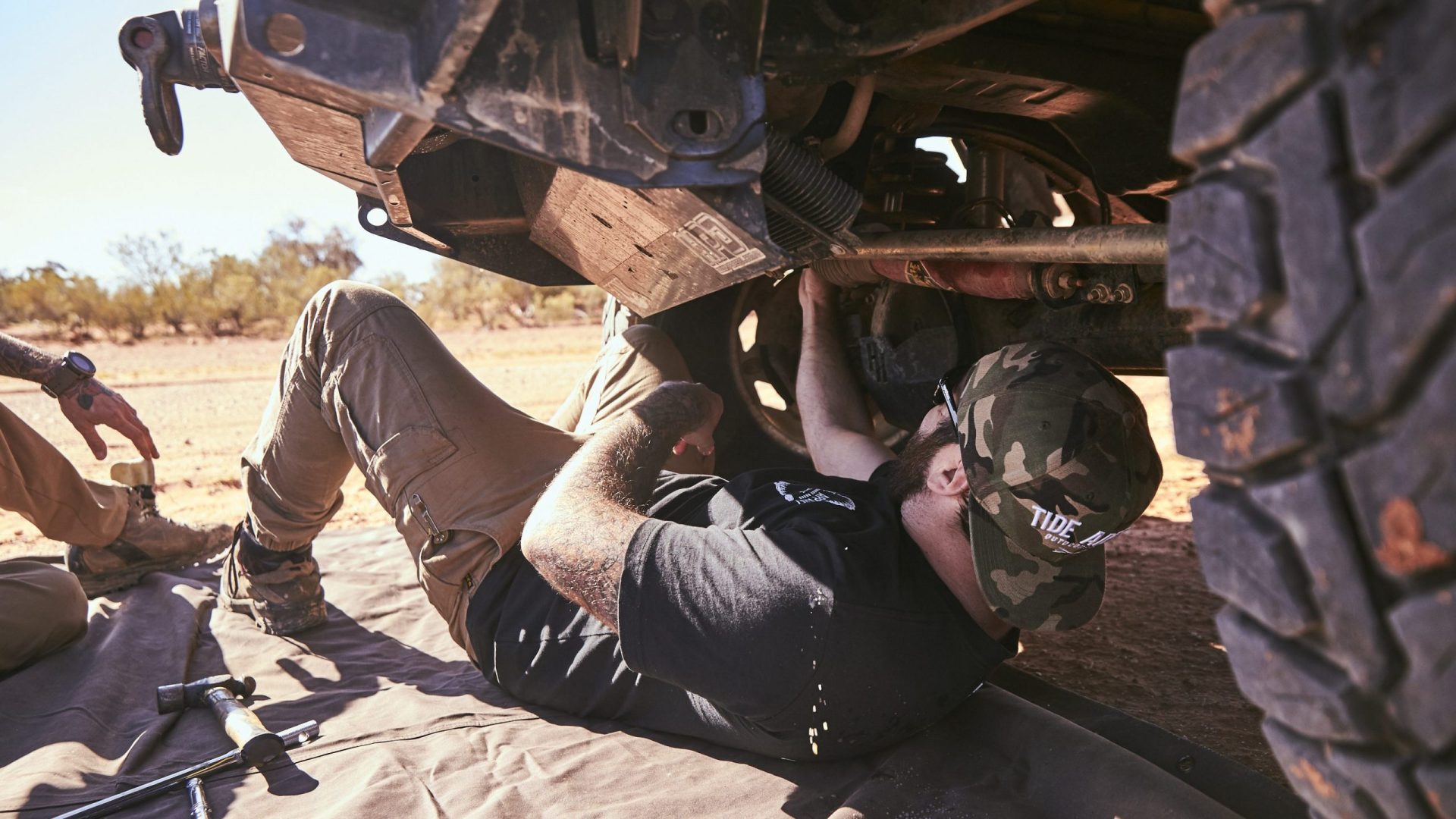
We’ve shredded more fan belts than we’d ever care to admit, and it’s taught us a couple of very important lessons. First of all, give your belt pulleys a quick once over before a trip. If they feel loose, gritty, or tough to turn, they need to be replaced as soon as possible or your fan belts are living on borrowed time.
It’s not practical to bring every pulley with you and they rarely fail without notice, so fix them at home so you only have to worry about the belt. Wayward sticks, thick mud, or even wear and tear can cause them to fail. When they go, it’s the end of all your engines accessories working, including the water pump. They’re a simple track side fix. Cheap, and small enough to stash in a nook or cranny somewhere. It’s 100 per cent worth having one (and knowing how to change it).
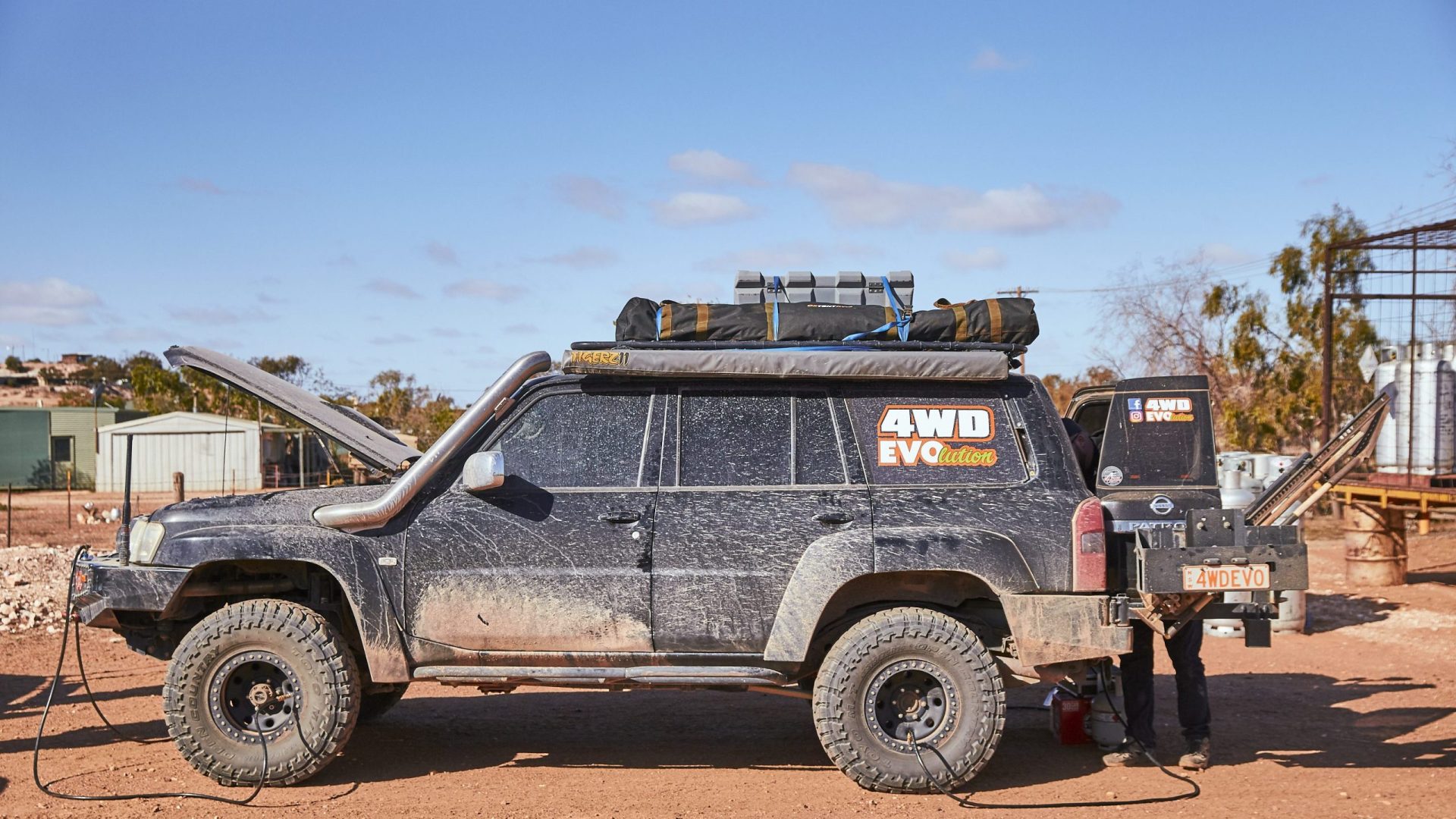
Have you ever heard the story of the bloke who used to cross the ‘Simmo every year in his old Land Rover? Well, it goes that he’d break a rear diff every trip, and would luckily be carrying one in the back he could swap in. One year he couldn’t get a spare so braved the journey without it. Low and behold he didn’t break the diff, the lighter load being significantly easier on the driveline.
Unless you’re forging a path through near virgin land or bought the cheapest tyres you could find, then dual spare tyres aren’t necessary. Buy quality tyres, manage your tyre pressures, and stash a puncture repair kit in the back of your drawers. Most punctures you face will be easily dealt with with a few plugs.
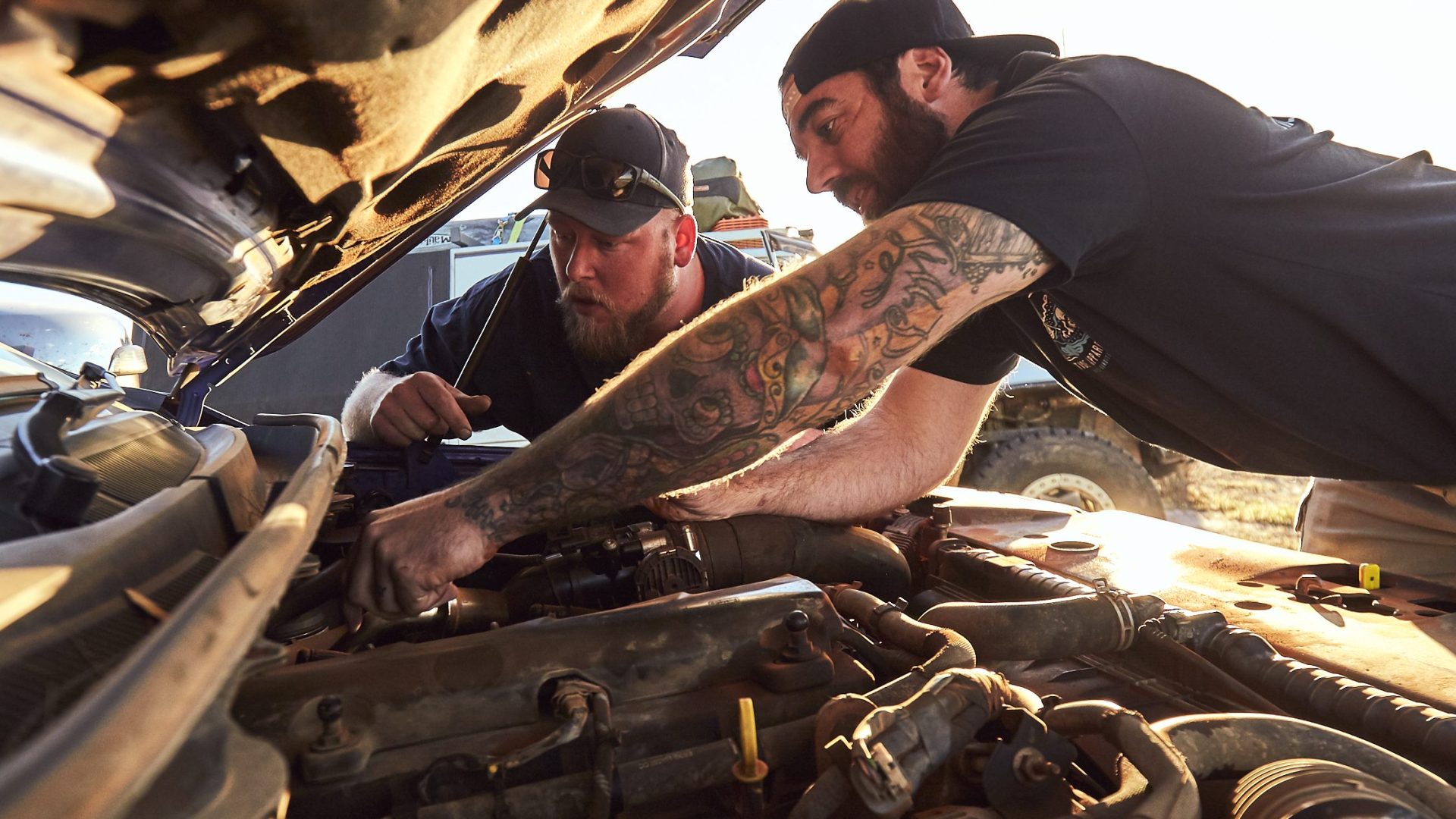
Internal combustion engines are a barrel of fun but they’re also horrendously inefficient. About six per cent of the energy in your fuel gets soaked up in the transmission, driveshafts, and diffs. Roughly five per cent goes towards running your alternator, power steering, and A/C. And a further four per cent gets soaked up overcoming the friction losses in your engine. But the biggest energy loss is heat; over 50 per cent of all the energy in your fuel goes to creating heat. It’s not surprising that when you remove your engine’s ability to rid itself of heat, things go pear-shaped real fast.
Even if you’ve just replaced your radiator hoses, stash a full set of replacement ones in the drawers along with a handful of appropriately sized hose clamps. Eye off the actual system in your four-wheel drive as some run multiple hoses through external water pumps. You’ll want a metre of heater hose too in case something back there gets damaged leaving you dead in your tracks.
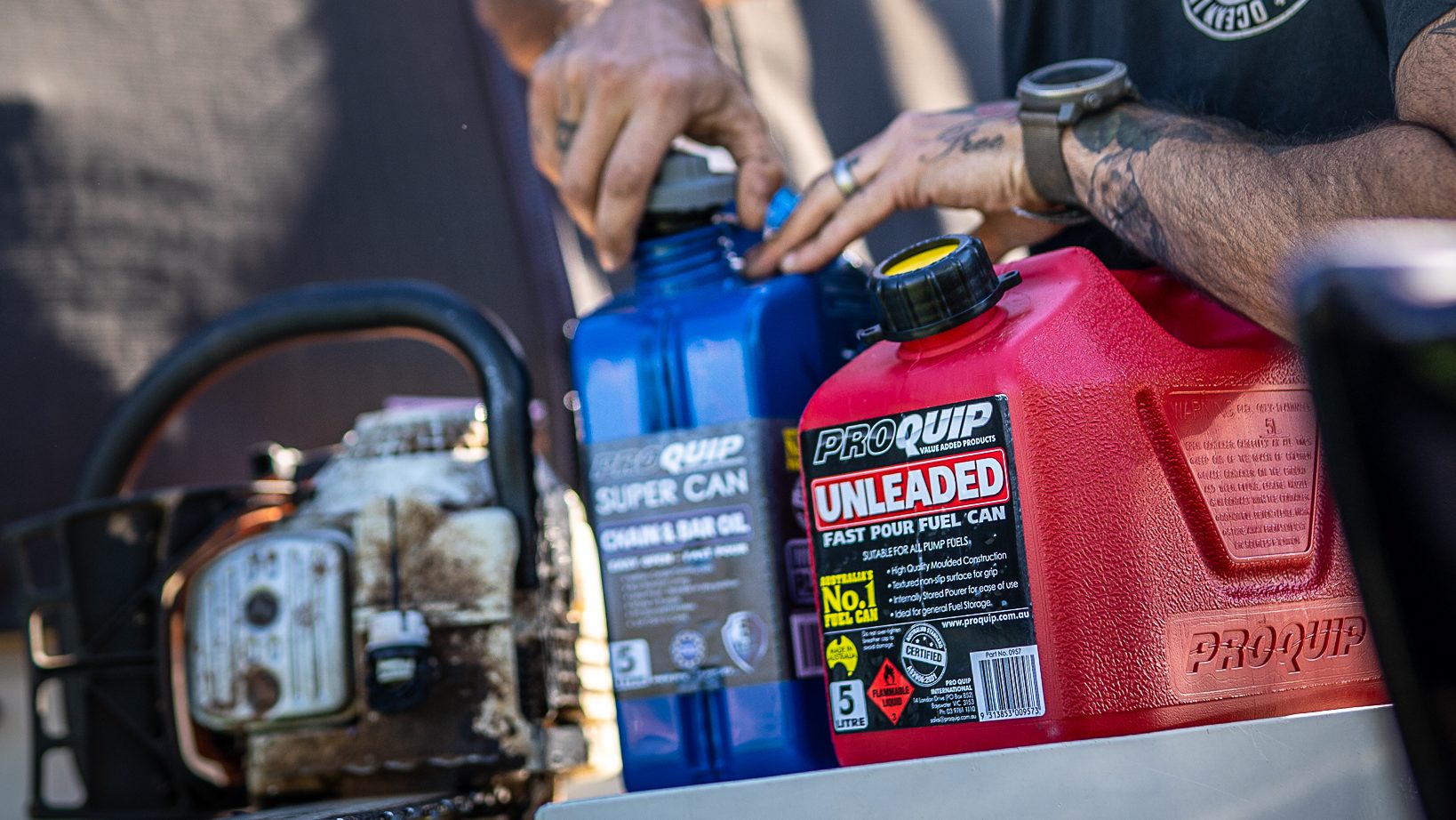
In case you haven’t noticed, our list is focused on the absolute game stopper issues. If your exhaust comes loose you can use a little bailing wire from your tool kit to hold it up. Not every item that can break needs to be carried. But oil? That’s an absolute must. Accidentally drown your four-wheel drive? You’ll need to change the diff oil or you’re not going anywhere. Snag a transmission cooler line? You’ll need to change the fluid or you’re not going anywhere. Power steering line cracks because you didn’t do your pre-trip check? You guessed it. Stuck. If your drain plug on your diff rattles loose, you can replace it by hammering a stick in to plug the hole, but unless you’ve got at least the bare minimum of oil to fill it back up with you’re not making it more than a few miles down the road.
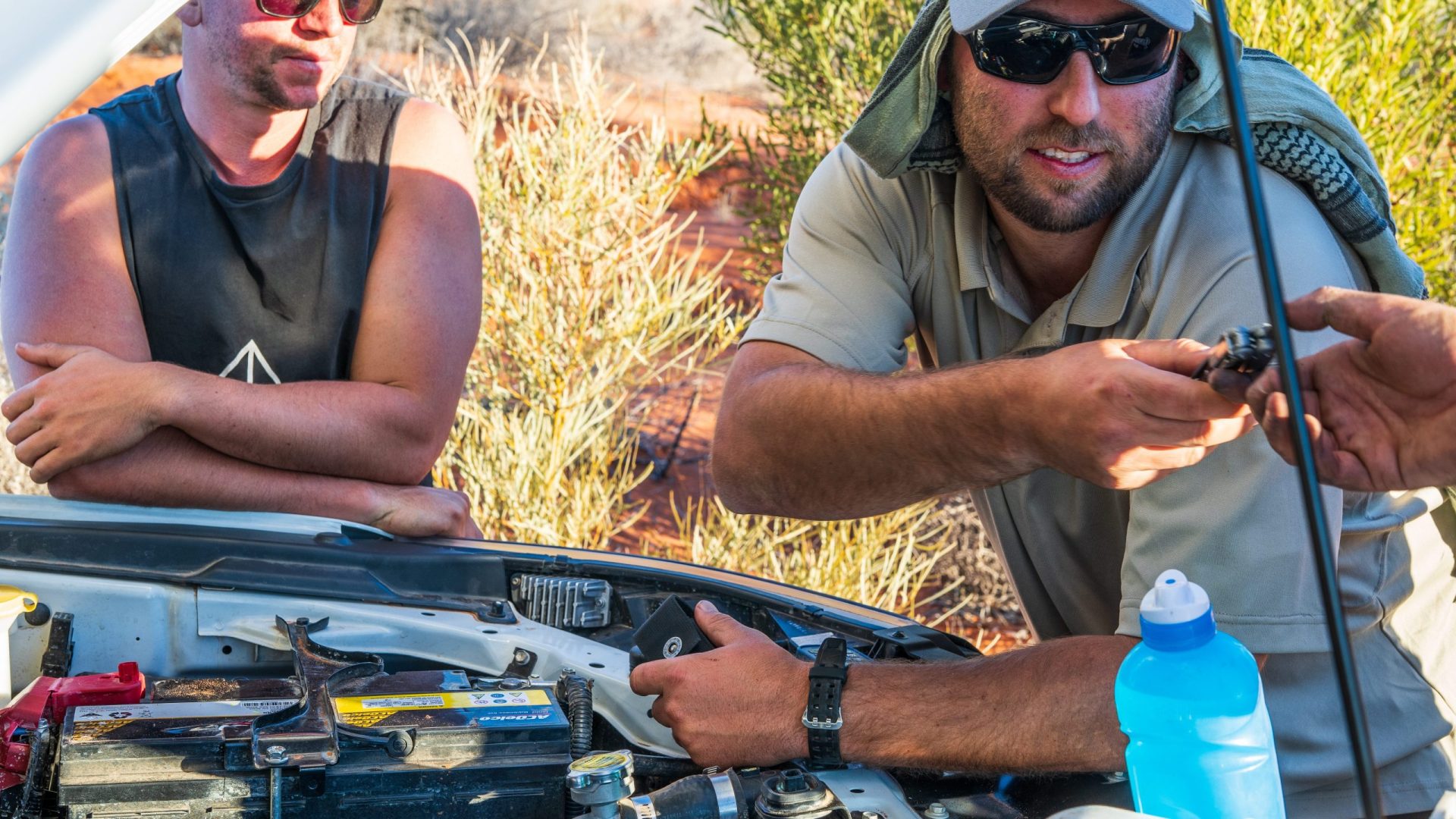
Electrical gremlins are notoriously hard to diagnose, but they’re not always hard to fix. On a trip to K’gari (Fraser Island) a few years back, an engine code flashed up telling us we’d had an oil pressure sensor fail. After 10 minutes of googling, we found the plug, then found the wire had come loose and burnt on the exhaust. The actual fix took even less time, a small section of wire twisted and taped into place and we were out of limp mode and back on our way (we repaired it properly when we got home).
By giving yourself a small bag stuffed full off scrap wire, spare fuses, spade terminals and electrical tape you’ll be able to do anything from fixing burnt wiring, replacing blown fuses (even when you don’t have the right sized ones), or jerry-rigging up a winch or set of driving lights on the side of the track.
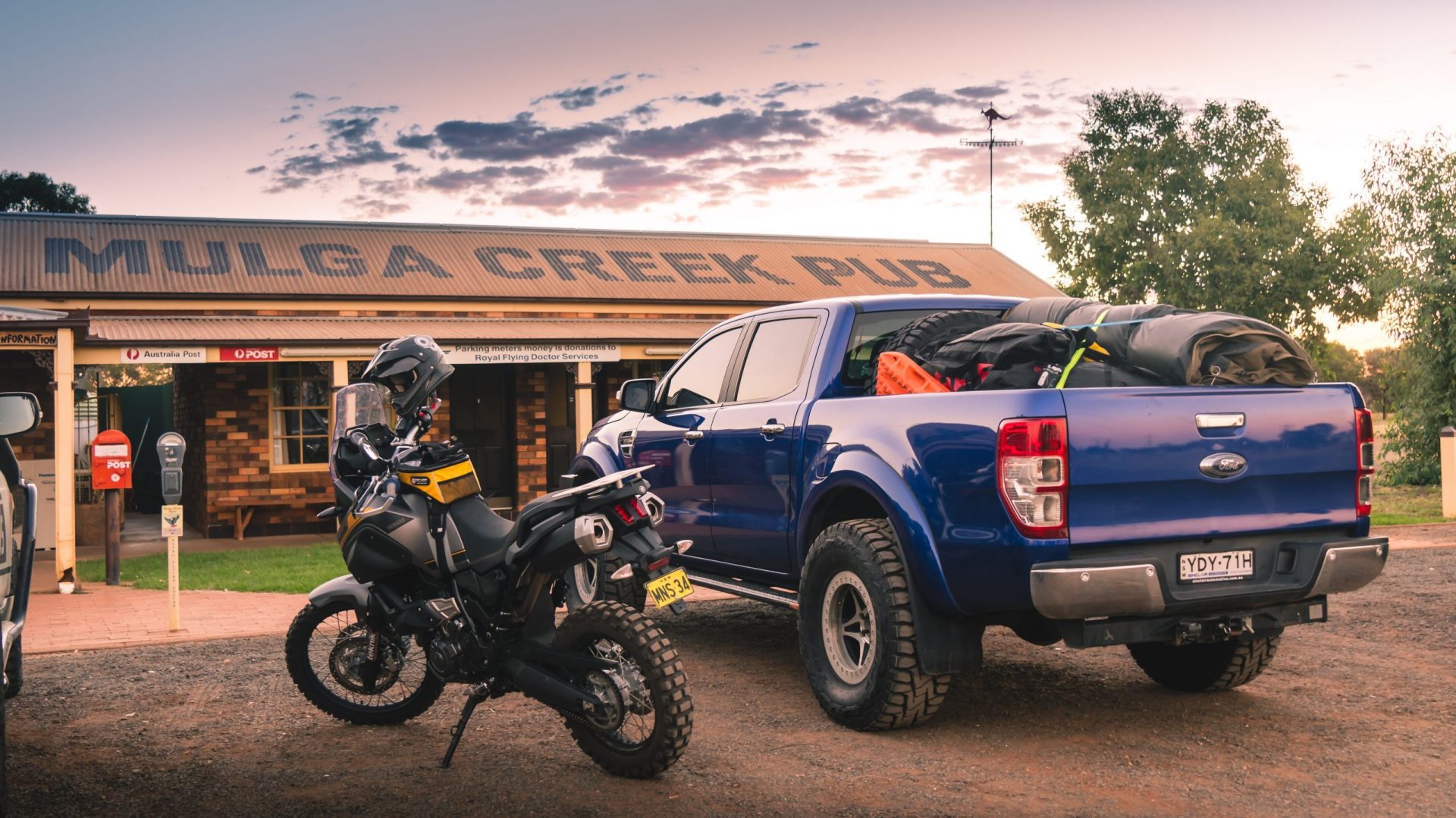
Deep inside your engine, your piston rings are maintaining a perfect near-microscopic gap between the pistons and your cylinder walls. Too thin a gap and the pistons would grab, grenading your engine. Too thick a gap and the energy produced in combustion will go past the cylinders; rather than pushing down on them. Stands to reason that shoving a bunch of sand and grit in there is going to do some pretty horrendous things to your engine, and the turbo on its way.
No matter how high your snorkel, or how many pre-filters, in dusty conditions your engine’s air filter will cop a hiding. Swapping it out for a clean one is the caring thing to do. Fuel filters are cheap insurance too and easy to swap out if you’re suspect you’ve picked up bad fuel, have power issues, or stayed a little too long in that river crossing
It’s impossible to prepare for every situation. Spare filters, wiring, hoses, and belts are all ways you can apply easy fixes in the bush if things don’t go your way. But they’re not going to save you in every situation. Likewise, a talented driver might be able to juggle a gearbox with a blown third gear home from the high country, but if the input shaft snaps, no amount of talent or cable ties in the world will help.
You ALWAYS need a get out of jail free card. A way to call for help, when help is what you need. With prices lowering things like PLBs, Sat Phones, and even two way GPS tracking devices are perfect for reaching out for help. But you don’t need to spend a week’s pay to do it. Travelling with a second vehicle, or at worst having a friend back home who knows where you are and what to do if you don’t contact them could save you a whole world of hurt.
Heading to the outback soon? Read our guide to driving in the outback.
Absolutely on all the above. Especially the PLB and (rented) sat phone. But never underestimate what you can achieve with tie wire and duct tape. They held my bash plate in place while on Gary and Connie Sue when the Gibb and Tanami corrugations caused it to shear at the rear mount points…
Hi all, After 10 minutes of googling, we found the plug.
This is all well and good, however we travel solo and well out of network range.(have HF radio & GPS built in )
I think an OBD – 2 scan tool + a repair manual with Diagnostic Trouble Codes (DTC) should be included, if only to get out of limp mode.
Our LC 79 series has sensors all over the shop !
Cheers and thanks for the article as the list of spares can be endless (wheel nuts and studs are important depending on the tug )
Alain.
loctite every nut and bolt you can get a spanner on especially the battery tie down. Don’t forget once your camp is set up for the night lift ya bonnet and have a good look over everything. you may be surprised what has come loose.
only carry what you will use and leave the chainsaw at home. an axe will do the job and also have a double as a hammer…
to the tip x5, east west crossing several times through the center,we look for dirt due to the lack of people,well that was back then.
The best advice I was given early in my 4WDriving was when you are facing a challenging task along your track is stop get the billy have a cuppa think and plan. Then decide do i really need to go this way or is there a better plan.